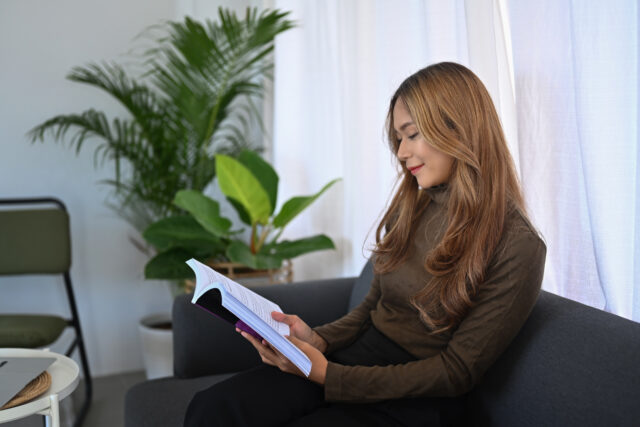It’s normal to get anxious before any sort of medical appointment.

This is especially true if you haven’t been well, and you’re afraid of a serious diagnosis, or you’ve already been diagnosed with a condition that could turn at any given time. Whatever your reasons for stressing before seeing your GP or specialist, here are some ways to go into the experience feeling slightly calmer.
1. Prepare your questions and concerns beforehand.

Writing down what you want to discuss can help you feel more in control. This way, you won’t forget important points due to nerves. It also gives you a chance to organise your thoughts, which can be quite calming in itself.
2. Arrive early to avoid rushing.

Give yourself plenty of time to get to your appointment. Rushing increases stress, so aim to arrive with time to spare. This extra time allows you to settle in, take a few deep breaths, and gather your thoughts before seeing the doctor.
3. Bring a book or something to distract yourself.

Having a form of entertainment can help take your mind off any worries while you wait. Whether it’s a good book, a puzzle app on your phone, or some music to listen to, a distraction can work wonders in reducing anxiety.
4. Practice deep breathing exercises.

Simple breathing techniques can significantly reduce stress and anxiety. Try taking slow, deep breaths, inhaling for a count of four, holding for four, and exhaling for four. This can help lower your heart rate and make you feel more relaxed.
5. Chat with a friend or family member beforehand.

Talking to someone you trust about your concerns can help put things in perspective. They might offer reassurance or simply provide a welcome distraction. Sometimes, just voicing your worries can make them seem less daunting.
6. Avoid googling symptoms right before your appointment.

While it’s tempting to look up information online, this can often increase anxiety. The internet is full of worst-case scenarios that probably don’t apply to you. Trust that your doctor will provide the most accurate and relevant information for your situation.
7. Wear comfortable clothing.

Choose an outfit that makes you feel at ease. Comfortable clothes can help you feel more relaxed and less self-conscious during your appointment. This is especially important if you’re likely to need a physical examination.
8. Consider bringing a supportive friend or family member.

If your anxiety is particularly high, having a loved one with you can be comforting. They can offer moral support and even help you remember important points to discuss with the doctor. Just check with the surgery first to make sure this is allowed.
9. Use positive visualisation.

Imagine the appointment going smoothly and ending with good news. Visualising a positive outcome can help reduce anxiety and put you in a more optimistic frame of mind. Picture yourself leaving the appointment feeling relieved and reassured.
10. Have a light snack before you go.
 Source: Unsplash
Source: Unsplash Unless you’ve been told to fast, having a small, healthy snack can help stabilise your blood sugar. This can prevent additional physical stress on your body. Just avoid anything too heavy that might make you feel uncomfortable.
11. Listen to calming music or a relaxation podcast.

Soothing sounds can help lower your stress levels. Create a playlist of calming music or find a relaxation podcast to listen to on your way to the appointment. This can help create a sense of peace and tranquillity.
12. Remind yourself that doctors are there to help.

It’s easy to forget that doctors have your best interests at heart. Remind yourself that they’re professionals dedicated to helping you stay healthy. They deal with all sorts of health concerns every day, so there’s no need to feel embarrassed or worried about wasting their time.




